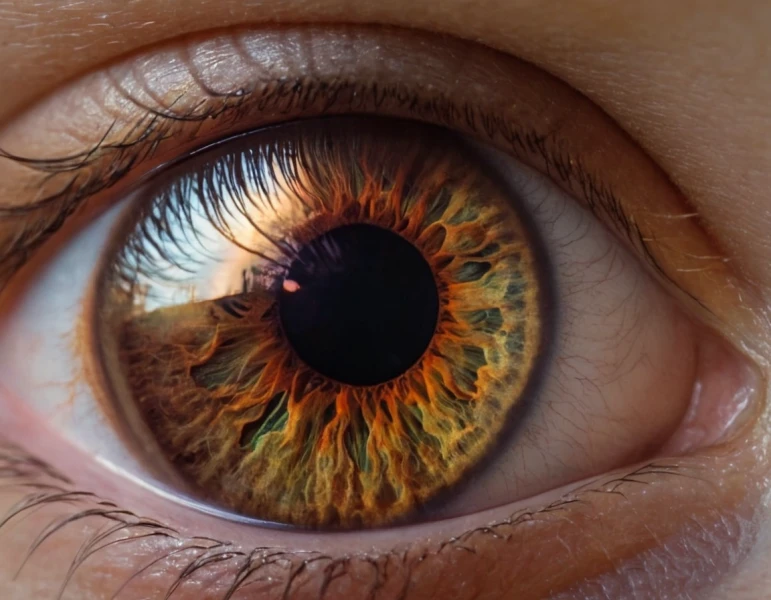Educa UNIVERSITY|SCIENCE AND ENGINEERING
Science News - The Key to Understanding the World Around Us
Related Masters
Science News - The Key to Understanding the World Around Us
If there is one thing I have learned over the years is that science is not a boring subject locked away in laboratories full of test tubes and complex mathematics. No, my friend! Science is the spark that lights the fuse of human curiosity and science news is the bridge that connects us to that universe of discovery that is constantly evolving.
Let me take you by the hand through the fascinating world of science news and explain why you should pay more attention to them, even if you are not a scientist or have a PhD hanging on your office wall. I promise that, by the end of this article, you will see the world with different eyes.
What is Science News?

Let's make it easy: science news is news that reports on the most recent advances in various areas of knowledge. Sound boring to you? Don't worry, I thought so too... until I realized its true potential.
Look, science news doesn't just tell you that they discovered a new exoplanet or that researchers can now print human tissue in 3D. They are a reflection of how the world is changing around us. They talk about how such research can transform our daily lives: from the use of renewable energy to the creation of sustainable food in laboratories.
Why You Should Pay Attention to Science News
Let me be clear: you don't need to be a scientist to understand the impact science has on your life. I'll give you an example that I experienced firsthand. A few years ago, when I became interested in sustainability issues, I realized that, without science, we would not have advanced one millimeter in slowing climate change. News like the development of more efficient batteries or the expansion of solar energy in China show us that all is not lost.
But wait, it doesn't stop there. Scientific news can also give us a glimpse of the future. For example, the use of artificial intelligence to detect diseases before they become a serious problem, or advances in personalized medicine, which are no longer science fiction, but realities that are knocking on the door of our hospitals.
What Types of Science News Are There?
When we talk about science news, we are not just referring to discoveries in biology or chemistry. Science encompasses a wide range of disciplines:
- Technology and digital advances: from quantum computing to automation in industry.
- Environment and sustainability: This is where science becomes a planetary lifesaver, from news about renewable energy to how scientists are cleaning oceans with autonomous robots.
- Medicine and biotechnology: This is probably one of the most impactful areas in our daily lives. Recently, I learned that the United States approved lab-grown meat, which could drastically reduce the environmental footprint.
How Science News Transforms Society
I'll confess something: for a long time, I thought science news was only of interest to nerds in white coats and thick horn-rimmed glasses. But I was wrong.
Take, for example, the impact of the COVID-19 pandemic. It was thanks to the rapid dissemination of scientific news that the population was able to understand the emergence of vaccines, and how these were developed in record time thanks to science. Moreover, those advances don't stop there, but the same technologies are now being used to develop treatments for other diseases.
Another example that struck me was reading about how science is helping to slow climate change. Imagine if there were no news about the latest advances in renewable energy; we would still believe that the only way to have energy is to burn coal. Science is literally lighting our way to a more sustainable future.
My Personal Experience with Science News
Let me tell you something personal. A few years ago, I was reading an article about nuclear fusion. I always thought it was the stuff of science fiction, but it turns out that there are scientists who are very close to making it a reality. Imagine a world where we no longer need fossil fuels, where an inexhaustible and clean source of energy is a reality. That's the magic of science news, they show you a future that's already just around the corner.
How to Stay Informed
Now that I've convinced you how important science news is, you're probably wondering: where can I find reliable information?
I recommend that you follow specialized media such as Science Daily, Nature News, or even some traditional newspapers that have sections dedicated to science, such as El País and La Vanguardia. In addition, there are university platforms, such as the Universidad Autónoma de Madrid, that publish fresh news about high-impact research.
Conclusion
Science news is not just for eggheads, it's for you and me! Because at the end of the day, science is not just about labs and complex formulas. It has to do with how we live, how we breathe, how we interact with the planet and, above all, how we can improve it for future generations.
So, the next time you see a headline that says "New scientific breakthrough," don't ignore it. Dive in, explore and who knows? maybe you'll discover something life-changing
.
Faculties
Trainings
The faculties embrace diverse academic disciplines and fields of study, opening doors to new perspectives and exploring different spheres of wisdom in a constantly evolving world.














